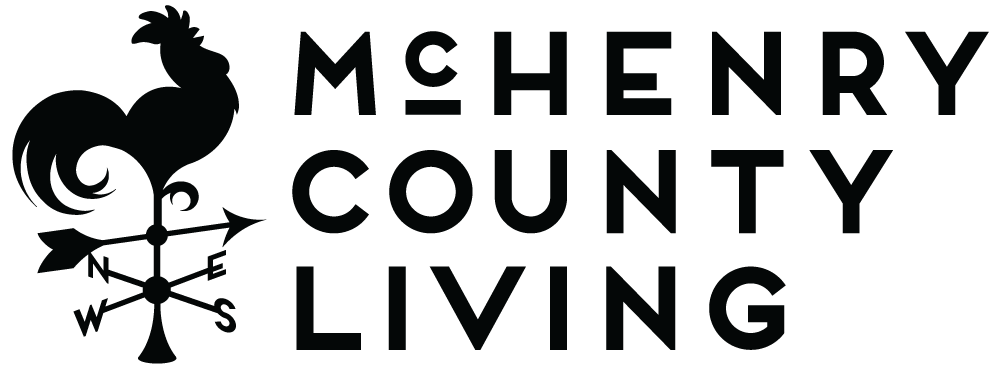A Pastor for Modern Times
By Kurt Moreland
Step back in time to McHenry County in the 1888 – before cars, before electricity was widely available, back when the United States is still largely a rural nation.
Reverend Edward J. Aiken would ride his bicycle from Elgin to Cary each week to lead Methodist worship in a one-room school building. A 40-mile round trip on plank roads. Imagine that.
Fast forward 132 years. Although so much has changed, Aiken’s efforts live on with Cary United Methodist Church (CUMC). Today, CUMC remains a faithful and connected congregation, albeit much larger. Cars have replaced bikes. And now virtual service replaces cars.
This summer, the congregation welcomed a new leader with a vision for modern times: Pastor Norval Brown.
Parishioner Kurt Moreland sat down with Brown to learn more about the unique experiences that make him an ideal leader for CUMC today and beyond.
Kurt Moreland: Tell us about your background.
Norval Brown: I have diversified experience with both African American and Anglo congregations. I was born and raised in a rural environment and have worked with urban and suburban churches. I am very hopeful for the future of both McHenry County and the country.
“I am very hopeful for the future of both McHenry County and the country.”
KM: Are you originally from Chicago? Where was your rural upbringing?
NB: I was born and raised in Brandywine, Md., which is 25 miles outside of Washington, D.C. I grew up working in tobacco fields, participating in 4-H, and in other activities common to rural life in America. I played basketball and baseball in high school and was also active at our local church. At nine years old, I knew I wanted to a pastor.
KM: Sounds like you were a multitasker before the term became popular! So how did a guy from the DC area end up in the Chicago area?
NB: I was valedictorian of my high school class and was applying to colleges. The University of Chicago had a scholarship outreach program for students in small and/or rural schools and I applied. I did not like the university or the city initially, but an endearing relationship with U of C basketball coach Joe Stampf helped me to persevere, even though at one point I had thought of leaving the school.
KM: I heard that after college, you were offered a try out for the Milwaukee Brewers professional baseball team?
NB: That is true. I also played baseball while in college and my coach had talked to a scout about me. I was not interested in playing professional baseball, so I did not pursue the tryout offer. I have singularly been focused on being a pastor and that is the path I chose.
“I have singularly been focused on being a pastor and that is the path I chose.”
KM: So, what did you major in?
NB: Fortunately for me, while I was at the U of C, they offered a new major called Religion & the Humanities. So that is what I majored in and studied with Robert Grant, Bernie McGinn and Martin Marty.
KM: Then you were able to be a pastor?
NB: Not yet. as the Methodist church requires a Master of Divinity Degree which I obtained from Garrett-Evangelical Theological Seminary.
KM : Then you were ready?
NB: Yes, I had met the academic requirements, but I have continued my academic pursuits. I earned my Doctor of Ministry degree from Chicago Theological Seminary. Since graduating from seminary, I have led parishes as a pastor for Methodist Churches in the Chicago area-Woodlawn, West Englewood, Maywood, Southlawn, Aurora, Homewood, Deerfield and now Cary.
KM: You covered a lot of ground and glad you are here. What are some things you are working on now?
NB: Getting to know the congregation and this community are of utmost importance. Maintaining connections with one another is difficult when so much is being done via Zoom. I find myself writing letters (not emails) and making phone calls to stay connected. Every Wednesday afternoon, I host a free conference call with scripture, meditation and prayer especially for those members without access to Wi-Fi.
“I find myself writing letters (not emails) and making phone calls to stay connected.”
KM: How has COVID-19 effected the way you hold services?
NB: We embraced online services. Those who are looking for a place to worship over the holidays are welcome to join us online every Sunday at 9 a.m. through the link on our Facebook page and also archive past services there, as well. These are free for all to experience.
CUMC is located at 500 N. 1st St. in Cary. Upcoming events open to all include Easter Egg Hunt and Palm Sunday Services. To learn more, call 847-639-7627 or visit caryumc.org; or follow on Facebook here.


